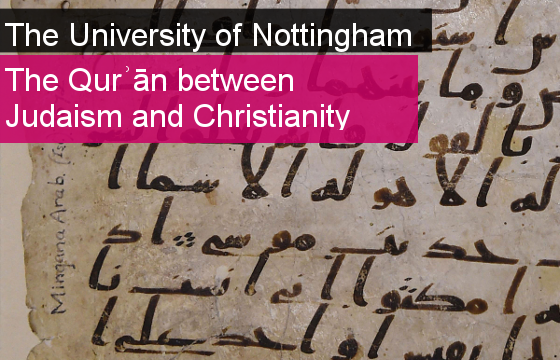Biblical Traditions in the Qur’ān, British Academy, London | October 11 – 12, 2018
Delegates were welcomed to the conference at the British Academy, in London by Nicolai Sinai (Oxford), who explained the impetuous behind the conference; a new publication on biblical traditions in the Qur’ān, which will hopefully go to press in 2019. While noting the continuing importance of the contribution made to the field by, amongst others, Heinrich Speyer, with his Die Biblischen Erzählungen im Qoran (1931), Sinai noted that this work remains untranslated and thus inaccessible to many scholars. Developments in the ways in which scholars approach the Qur’ān and view its relationship with biblical literature also call for a new publication that comprehensively examines biblical traditions in the Qur’ān, in light of these new approaches and methods.

The British Academy was established in 1902 and is based at 10-11 Carlton House Terrace in London (Photo Courtesy of the British Academy)
The conference suitably began with a presentation about The Creation in the Qur’ān and its reworking of biblical antecedents by Sean Anthony (Ohio State). Marianna Klar (Oxford) discussed the qur’ānic presentation of Adam, His Mate, and Their Sons, and Shari Lowin (Stonehill College) examined Noah and the Deluge in the context of the Qur’ān. Nicolai Sinai (Oxford) then spoke about the qur’ānic view of Abraham, while Adam Silverstein (Bar llan University) focused on Joseph. Nora K. Schmid (FU Berlin) and Michael Pregill (University of California, Los Angeles) considered Moses in Egypt and Moses in the Wilderness, respectively. The first day of the conference concluded with a presentation by Saqib Hussain (Oxford) on Elijah, Jonah, Job, and Uzayr.
Day two of the conference began with presentations by Walid Saleh (Toronto) on Saul, David, and Solomon and Jack Tannous (Princeton) on John the Baptist and Zechariah. This was followed by Gabriel S. Reynolds’ (Notre Dame) exposition of Mary, Jesus, and the Apostles, while Sidney Griffith (CUA) discussed The Narratives of Surah 18: The Companions of the Cave, Moses’ Journey, Dhū l-Qarnayn. In the afternoon, Stephen J. Shoemaker (Oregon) examined qur’ānic Eschatology, while Devin Stewart (Emory) looked at Qur’anic Parables. The final panel of the conference concluded with presentations by Angelika Neuwirth (FU Berlin) on the Qur’an and Liturgy and Holger Zellentin (Cambridge) on Law and Ritual.
The conference was well-attended by academics, graduate students and members of the public. Both the particular interests of the participants and the venue itself fostered a positive environment for further discussion and exchange both during the question sessions and various breaks.
IQSA looks forward to the publication resulting from the conference and will endeavor to keep readers posted as to a publication date. Many thanks to the organizers, both delegates and the staff at the British Academy for making the conference such a success.
© International Qur’anic Studies Association, 2018. All rights reserved.

